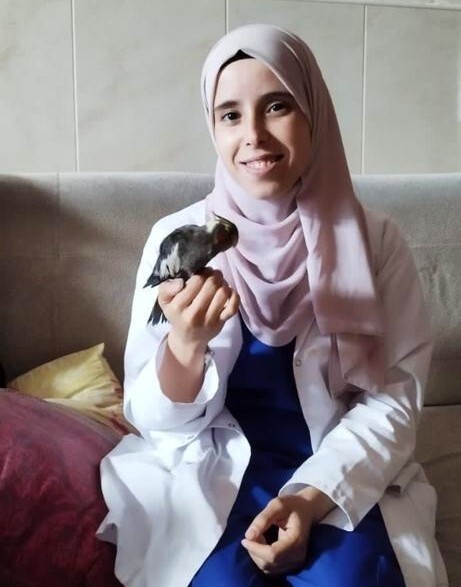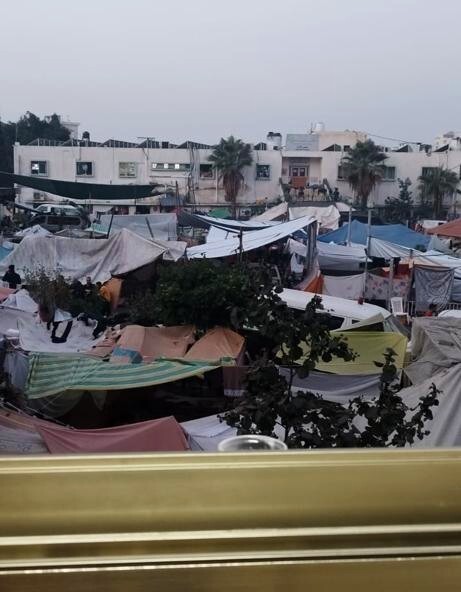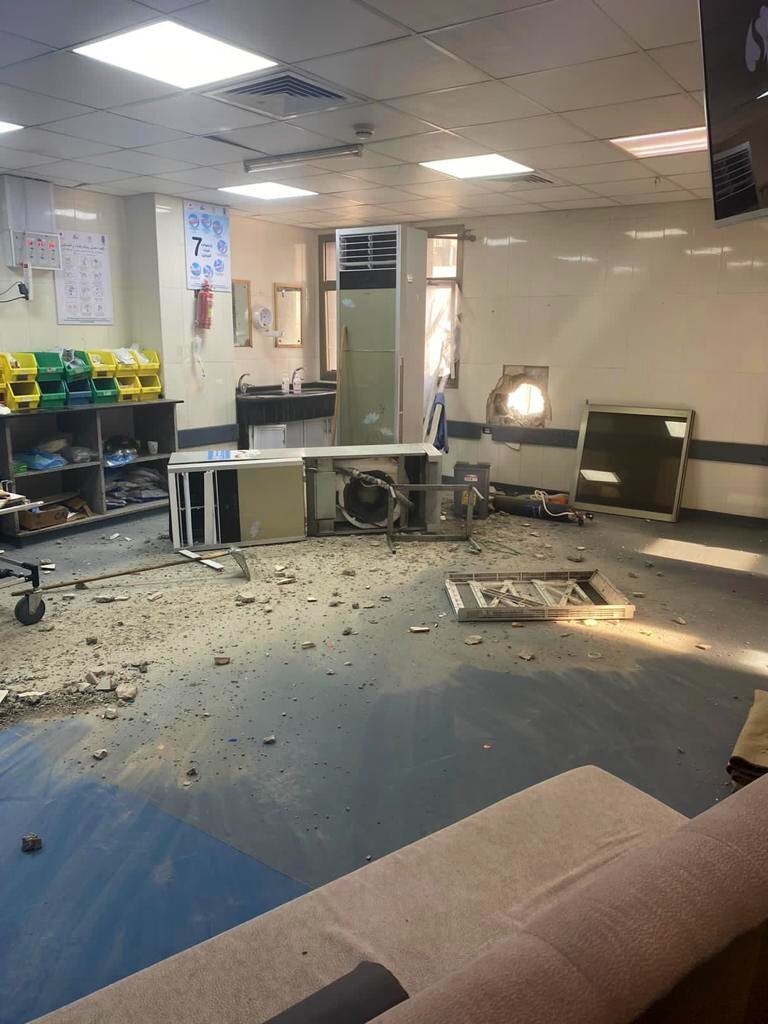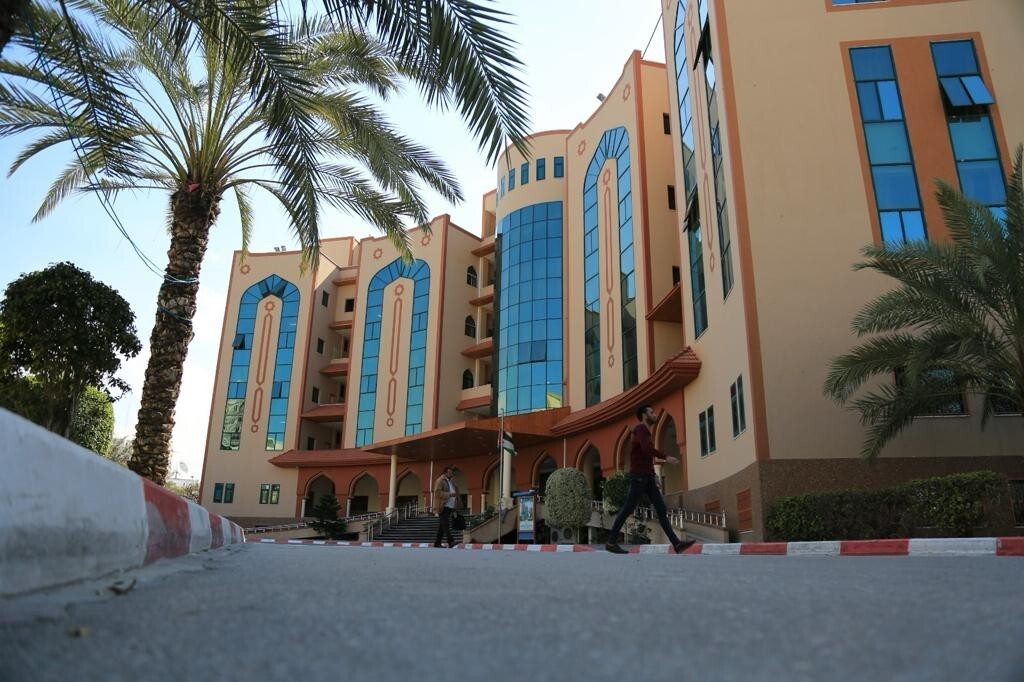As the head nurse at Gaza’s Al-Shifa Hospital since 2020, Hind Abu Hamad knows the corridors well.
But as the situation in the besieged territory deteriorated, it became her home.
“I would rarely communicate with my family and I saw them only once in five weeks,” the 25-year-old said.
“With no electricity, no wi-fi it was impossible to reach out to anyone. It was stressful not knowing the fate of my loved ones.”
The Al-Shifa Hospital, Gaza City’s largest health campus, has made international headlines throughout the war.
Israeli forces have continually claimed it is used by Hamas as a headquarters, although Hind said she never saw any evidence.

Hind says at the height of the war exhausted staff used a small closet to sleep.
“We had a little mattress for half of our body. We had shifts as we shared the ‘floor bed’ with four other medics,” she said.
While things had been devastatingly difficult during the war, Hind said everything changed on November 18.
She said the IDF told them to evacuate the hospital and told them which street to use.
Faced with an impossible choice, Hind and her colleagues ensured that patients unable to walk were cared for by the Red Cross before leaving.
“I am devastated to have left behind my life, my memories, my souvenirs, and many dead colleagues and friends,” she said.

The hospital is now in the middle of the war zone and is no longer being used to treat patients.
Hind is one of 11 sisters. She is the sole breadwinner of the household, which includes her parents.
On the second day of the war, she fled the el Touwan neighborhood, north of Gaza City with all her siblings and her parents.
Hind was a bright student, but both her school and university have been destroyed in the relentless bombings.
Before the war, her neighborhood was an important Hamas military outpost.
“I have not returned to my house since the beginning of the war as it is located in a high-risk district. I have seen pictures of my neighbours’ apartments and they were all obliterated. I think my house has been destroyed as well,” she said.

The conflict has taken a severe toll on Gaza’s healthcare system. More than 200 healthcare workers have been killed, and more than 215 injured since the war’s start, according to the Gaza Health Ministry.
“With Al-Shifa siege, there were no more food supplies so I ate once a day leftovers left behind by the refugees who had fled the hospital. Water was scarce as well,” Hind said.
“Due to the poor hygiene at the hospital, I caught a lung infection that was treated rapidly. I was lucky it did not damage my lungs.”
An assessment dating from November 18, by a joint United Nations humanitarian team, led by the World Health Organization, revealed the dire circumstances at Al-Shifa.
The team found corridors filled with medical and solid waste and a mass grave by the hospital’s entrance, with at least 80 bodies.
The Hamas-run Gazan health ministry says more than 14,000 people have been killed in the territory since the war began and that more than 30,000 have been injured.
Amid those numbers, the image of a baby who died in the hospital from injuries still haunts Hind.
“A four-month-old toddler suffering from brain haemorrhage; he was on a ventilator. We could not feed him nor give him water. We made sure that he was never left alone,” she said.
The unknown babies and children were numbered as no-one was able to identify them.
“There was number 1, 2 and we ended reaching number 700. It is heartbreaking,” she said.

Even before the war, Gaza was in a dire economic state.
“I need [to] stay alive for my family,” Hind said.
“I had savings that I was not able to take with me given that we fled our home in the middle of the night without anything else but our clothes.”
Last week, the IDF announced Al-Shifa Hospital director Mohammad Abu Salmiya had been arrested and was being questioned.
“What stresses me most is that I don’t know when I can go back to work. I am responsible for a whole family. If I don’t bring money in, we all starve,” she said.
This post was originally published on this site be sure to check out more of their content.






